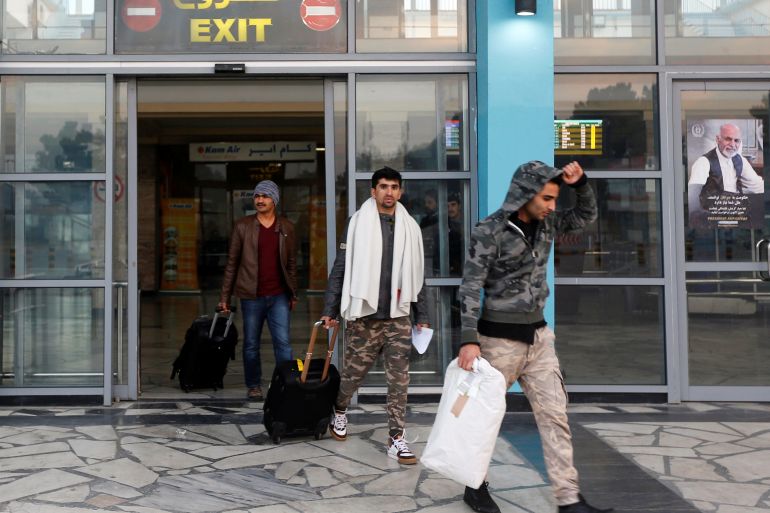Germany, Netherlands freeze deportations to Afghanistan
Berlin and Amsterdam announce U-turns as Taliban fighters make rapid territorial gains in conflict-gripped Afghanistan.

Germany and the Netherlands are temporarily halting any efforts to deport Afghan asylum seekers, a move that acknowledges the rapidly deteriorating security situation in the war-torn country.
The countries announced the U-turn on Wednesday, although both countries had earlier warned against halting deportations, insisting on their continued right to do so. They were among six European Union member states who last week petitioned the bloc not to suspend returns to Afghanistan, where the speed of the Taliban’s blitz has shocked the government and its Western allies. The others were Austria, Denmark, Belgium and Greece.
Keep reading
list of 4 itemsAfghan leader rallies forces in Taliban-besieged northern city
Who controls what in Afghanistan
Timeline: Afghanistan provincial capitals captured by Taliban
Taliban fighters battling Afghanistan’s US-backed government captured a ninth provincial capital in less than a week amid a blistering offensive launched as foreign forces withdraw.
The Dutch government said it would not deport Afghans seeking asylum for six months. Germany has yet to clarify how long its suspension would last.
In a letter to the parliament, Dutch deputy Justice Minister Ankie Broekers-Knol said the Netherlands’s decision was “in light of the quickly deteriorating situation” there.
“The situation is undergoing such changes and developments and is so uncertain for the coming time, that I have decided to impose a freeze on decisions and deportations” in continuing asylum cases, Broekers-Knol wrote.
A spokeswoman for the ministry noted that while last week’s letter represented the government’s view at the time, it had not conducted any forced deportations in the past six months and had not had any planned.
Germany and the Netherlands are now in line with EU member states Finland and Sweden, as well as EEA member Norway, which recently announced they were suspending deportations to Afghanistan.
Kabul urged all European countries in early July to halt forced deportations for the next three months while security forces fight the Taliban.
The European Commission, the EU’s executive arm, had said it was up to individual member states to determine whether Afghanistan is a safe country for returns.
“At an EU level, there isn’t a list of countries considered safe relating to asylum applications or for returns,” a spokesman for the commission told Reuters on Tuesday.
Last week, the European Court of Human Rights temporarily halted the imminent deportation from Austria of an Afghan man whose request for asylum was turned down.
The court cited Afghanistan’s stance on deportations and the violence in the country as factors.